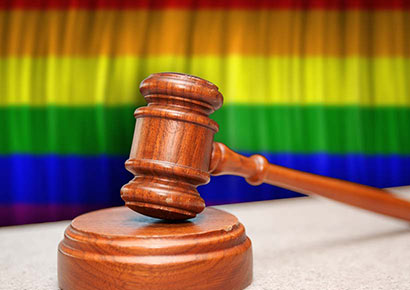Kenyan activists hope Indian gay sex ruling will sway judges
 Kenyan human rights groups will argue that the High Court in Nairobi should consider the recent Indian Supreme Court ruling legalising same-sex intimacy in their own bid to decriminalise homosexuality in the African country.
Kenyan human rights groups will argue that the High Court in Nairobi should consider the recent Indian Supreme Court ruling legalising same-sex intimacy in their own bid to decriminalise homosexuality in the African country.
The Kenyan case, first filed in 2016, is challenging sections of that country’s penal code that criminalise same-sex intimacy. The matter is being considered by a three judge bench of the High Court. Under the penal code, penalties for having gay sex include five to 14 years in prison.
Kenya’s National Gay and Lesbian Human Rights Commission (NGLHRC) confirmed on Thursday that the High Court will allow it to give oral submissions relating to last month’s historic Supreme Court of India judgement. They also hope to be given a date when a ruling will be made.
The court has agreed to hear arguments from both human rights activists and the government on 25 October with regard to the relevance of the Indian decision. The NGLHRC believes that the Indian ruling, while not binding on Kenya, is pertinent to the case, and that the High Court judges could be swayed by the judgment.
The organisation has pointed out that both nations’ bans on homosexuality are based on colonial-era British anti-sodomy laws. India’s Justice Chandrachud stated that decriminalising homosexuality was a major step in burying the ‘colonial ghost’.
“The [Indian] Supreme Court’s insistence that colonial laws cannot be used to continue to justify oppression of one group is… very important,” said Njeri Gateru, Executive Director of the NGLHRC.
“We must begin to reclaim our own notions of fairness and equality as envisioned in the progressive constitutions we have passed since that dark colonial era.”
The NGLHRC argues that the criminalisation of homosexuality is in breach of Kenya’s Constitution and denies basic rights to the country’s citizens.
There have been a number of recent legal victories for the LGBTIQ community in Kenya. In March, the Court of Appeals ruled that forcing men to undergo anal examinations for “evidence” of homosexuality is unlawful.
Last month, Kenya’s High Court agreed to temporarily lift the ban on the groundbreaking lesbian film Rafiki, which had earlier been banned by the Kenya Film Classification Board.
Leave a Reply